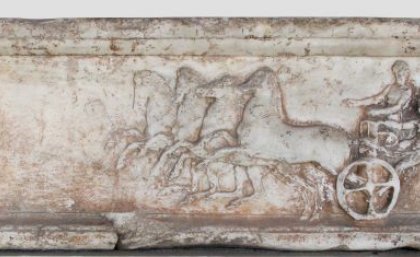Ancient Olympians Didn't Win Medals—They Won Olive Oil

When you think of the Olympic Games, you probably picture gold medals, roaring crowds, and podium finishes. But for athletes in ancient Greece, the prize was far more… slippery.
According to new research from the University of Queensland, athletes at the original Olympic Games weren’t competing for medals—they were vying for amphorae filled with sacred olive oil. That’s right: victory came in the form of prestige and premium produce, not precious metals.
Unlike today’s global spectacle, the ancient Games—dating back to 776 BCE—were deeply religious and highly exclusive. Events were held in Olympia to honor Zeus, and only free Greek men were allowed to compete. Winners didn’t just walk away with olive oil; they earned eternal glory, sculptures in their likeness, and lifelong perks like free meals and front-row seats at public events.
But why olive oil?
The oil awarded at Panathenaic Games in Athens, for example, wasn’t your everyday kitchen variety. It was pressed from sacred groves of Athena, making it ritually significant and economically valuable—often worth its weight in silver. Victors could receive up to 40 amphorae, which they could sell or display as proof of elite status.
It’s a striking reminder that athletic glory in ancient Greece was about more than physical prowess—it was intertwined with myth, honor, and community. Forget endorsements and medals. For ancient Olympians, the prize was immortality through oil-soaked legacy.
So the next time you drizzle olive oil on your salad, remember: you’re handling what was once the gold standard of ancient sport.